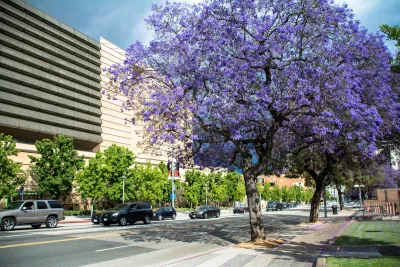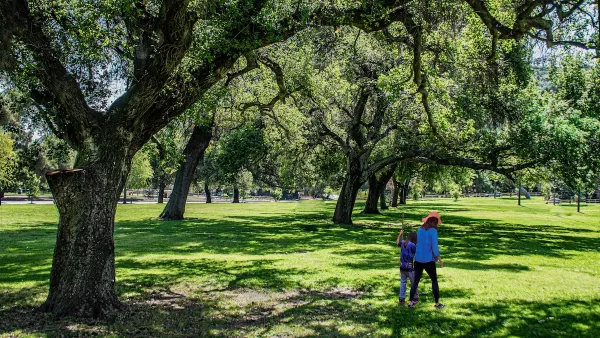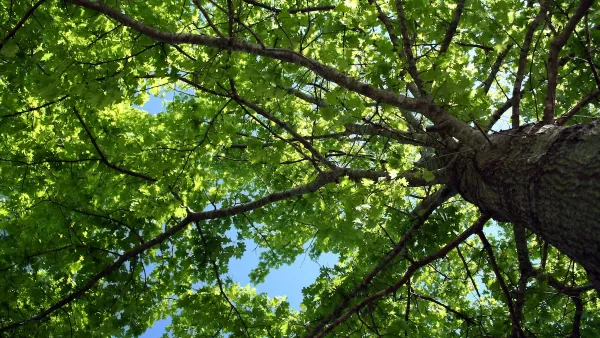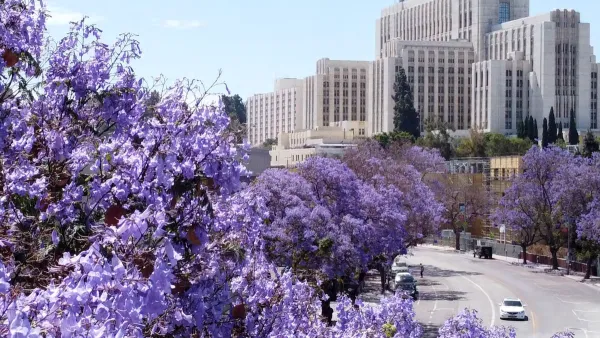A new study highlights the complex challenge of addressing tree canopy disparities in South L.A., where historical environmental injustices, budget constraints, and competing community priorities hinder efforts to increase equitable tree coverage.

A recent study led by the University of Southern California (USC) and the South L.A. Tree Coalition highlights the complex challenge of increasing tree canopy in South Los Angeles, a region that has long faced environmental injustices. The study, “Rooted Connections,” reveals that while community leaders value trees for their cooling effects and public health benefits, they also face competing priorities like homelessness and gentrification, making the lack of trees more than just an environmental issue. With city budget cuts affecting urban forestry efforts, progress toward equitable tree distribution in underserved areas could be delayed.
As reported by Lila Seidman, the study also emphasizes the historical context behind the lack of trees in South L.A., citing discriminatory planning practices that have led to a disproportionate lack of greenery. Areas like South L.A. have tree canopies as low as 5 percent, compared to wealthier neighborhoods with significantly more coverage. Community leaders interviewed in the study pointed out the mental and physical health impacts of heat and the absence of natural spaces, as well as concerns about tree planting being associated with gentrification, signaling the need for intentional and community-led greening efforts.
Despite limited resources, efforts to improve canopy coverage are underway, with the Urban Forestry Division focusing on an equity-based approach to prioritize tree planting in high-need areas. However, achieving this goal requires more than just planting trees—it will necessitate a commitment to maintenance, partnerships with nonprofit groups, and adequate funding to ensure long-term success in addressing both environmental and social justice issues in South Los Angeles.
FULL STORY: ‘There is no easy fix’: Study reveals attitudes about lack of trees in South L.A.

Analysis: Cybertruck Fatality Rate Far Exceeds That of Ford Pinto
The Tesla Cybertruck was recalled seven times last year.

National Parks Layoffs Will Cause Communities to Lose Billions
Thousands of essential park workers were laid off this week, just before the busy spring break season.

Retro-silient?: America’s First “Eco-burb,” The Woodlands Turns 50
A master-planned community north of Houston offers lessons on green infrastructure and resilient design, but falls short of its founder’s lofty affordability and walkability goals.

Test News Post 1
This is a summary

Analysis: Cybertruck Fatality Rate Far Exceeds That of Ford Pinto
The Tesla Cybertruck was recalled seven times last year.

Test News Headline 46
Test for the image on the front page.
Urban Design for Planners 1: Software Tools
This six-course series explores essential urban design concepts using open source software and equips planners with the tools they need to participate fully in the urban design process.
Planning for Universal Design
Learn the tools for implementing Universal Design in planning regulations.
EMC Planning Group, Inc.
Planetizen
Planetizen
Mpact (formerly Rail~Volution)
Great Falls Development Authority, Inc.
HUDs Office of Policy Development and Research
NYU Wagner Graduate School of Public Service




























